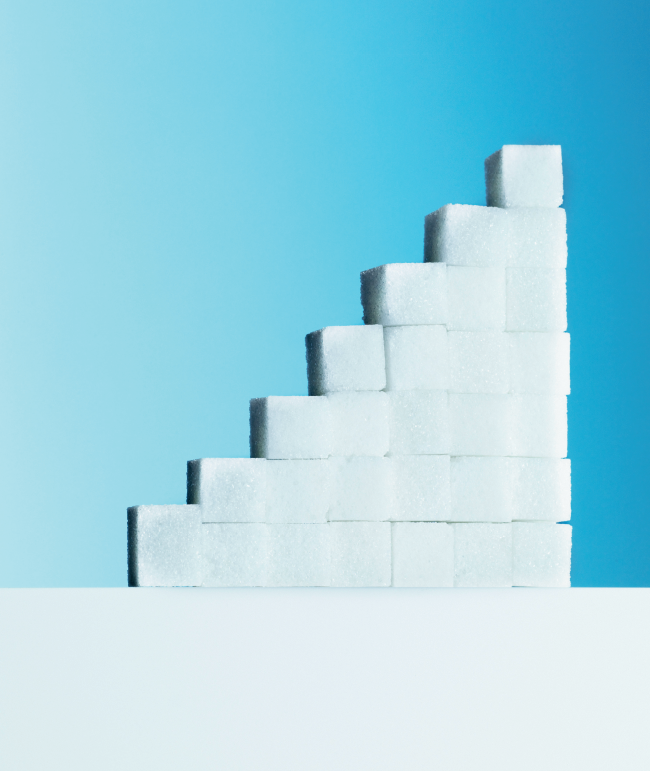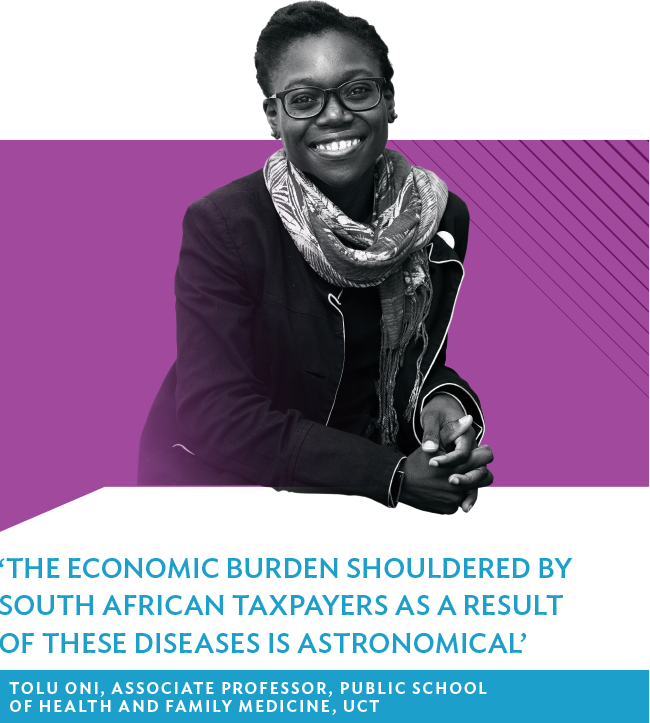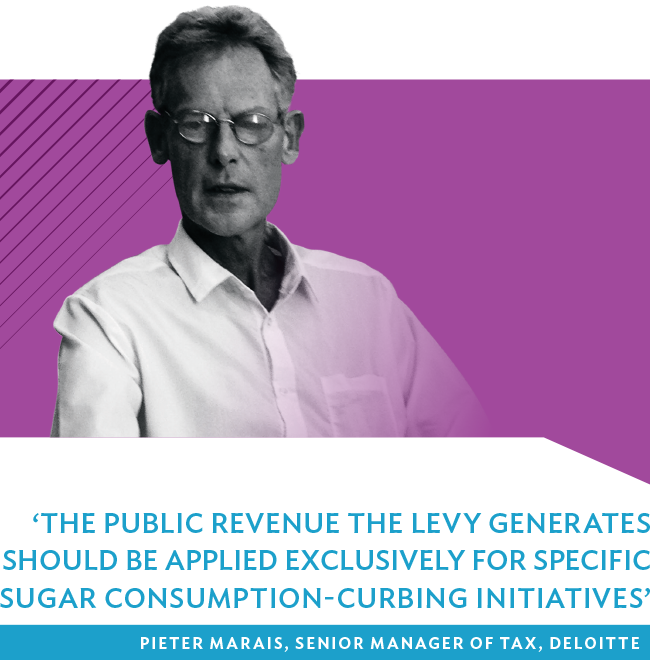There’s no way of candy-coating this – SA is an obese nation. ‘Sugar consumption is a major cause of obesity. It also increases the risk of diabetes, liver and kidney damage, heart disease and some cancers,’ says Tolu Oni, associate professor at the University of Cape Town’s Public School of Health and Family Medicine.
‘These diseases affect relatively young people who are potentially still economically active. The existing and growing economic burden shouldered by South African taxpayers as a result of these diseases is astronomical. But because these costs are borne by the health – not finance – sector, the cost of not intervening to stem this epidemic is under-appreciated.’
The 2017 Budget proposes intervention in the form of its health promotion levy (‘sugar tax’) on sugar-sweetened, non-alcoholic beverages, both ready-to-drink and concentrates, which are imported or locally manufactured and consumed in SA. Excluded from this are sugary drinks in powder or granular form and, for the time being, 100% pure fruit juices and sweetened milk.
Treasury has relaxed its original proposal, which now contains a levy-free threshold and also reduces the cent-per-gram of sugar rate – translating to a tax rate of 11% for a 330 ml can, down from the initially proposed 20%.
André Erasmus, an executive in ENSafrica’s tax department, explains the details. ‘The proposed sugar levy will be levied as 2.1 cents per gram of the sugar content [down from the initially proposed 2.29c/g] that exceeds 4g/100 ml in ready-to-drink beverages, and 1.05c/g of the sugar content that exceeds 4g/100 ml in the case of concentrates, which are products that need to be diluted before they can be consumed.
‘On a can of Coca-Cola, with a sugar content of 35g per 330 ml can, the sugar tax will be 14c per can.’
Or, as Ismail Momoniat, head of tax and financial sector policy at the SA Treasury, told the media, only five of the eight teaspoons of sugar contained in a can of Coke will be taxed.
At current consumption levels and taking the revised figures into account, the levy should generate at least R6 billion a year, according to Pieter Marais, senior manager of tax (customs and global trade) at Deloitte.
‘Note that the less public revenue this levy generates – at optimum compliance levels, of course – the more effective it will prove to be, as that will most likely be an indication that targeted sweet beverages are consumed less.’
However, will a sugar tax on cooldrinks be able to effectively reduce sugar consumption? And why is sugar being singled out? Those remain some key controversies among stakeholders.
In April, the Beverage Association of South Africa (BevSA) released a media statement, saying it remained concerned about the ‘disproportionate focus specifically on sugar in beverages as a source of calories’.
According to Mapule Ncanywa, the body’s executive director: ‘Singling out one beverage category and taxing it punitively does not make sense.’ She previously told a Parliament hearing that a total dietary intake study was required to establish whether a sugar tax was the right instrument to target obesity.
However, health professionals agree that sugar is an obvious starting point when addressing the problem. ‘Many South Africans are at a greater health risk due to the high consumption of free or added sugars,’ according to the Association for Dietetics in South Africa, which supports the proposed sugar levy.
‘In South Africa, children typically consume approximately 40g/day to 60g/day of added sugar, possibly rising to as much as 100g/day in adolescents,’ states the association. ‘While sugars are found naturally in many foods, including fruits and dairy products, high intake of added sugars contribute to the energy density of a diet without improving its nutritional quality.’
These ‘empty’ calories without nutritional value leave consumers hungry and are particularly harmful to the body in liquid form, says Oni.
They are plentiful in fizzy drinks. The approximately 35g (eight teaspoons) of sugar contained in a typical 330 ml can of cooldrink nearly reaches the maximum daily amount of 50g recommended by the WHO. And it shows – in this country, 22.9% of children between the ages of two and 14 are overweight, according to an extensive national health survey. Among adults, SA women are more than twice as likely to be obese than men (65.1% compared to 31.2%).
Sugar taxes – like ‘sin’ taxes for tobacco and alcohol – have been used across the globe to influence consumer purchasing, although experts say they only work if they are sufficiently high. In its 2016 policy paper, Treasury recommended a levy of 20% as most effective. This tax rate could potentially reduce obesity in 220 000 adults, according to a Wits University think tank.
So when then Finance Minister Pravin Gordhan announced an 11% sugar tax rate in March 2017, health industry stakeholders were disappointed, while the beverage and sugar industries welcomed the decrease.
President of the South African Medical Association Daniel Ncayiyana told Parliament in a public hearing that ‘there’ve been a number of successful interventions, as for example in Philadelphia in the US, such as limiting the availability of sugary drinks in vending machines and giving incentives to shops that sell healthy foods’.
A widely quoted study on Mexican sugar tax found that consumption of sugary drinks decreased by 9.7% in the second year after implementation. The highest impact was felt among low-income families that switched to healthier alternatives.
However, SA’s beverage industry and sugar growers argue that the trade-offs of a sugar tax are too high. ‘The timing of this tax is really not good. We’re an industry under siege,’ says Rolf Lütge, chairman of the SA Sugar Association.
‘The impact on our industry is going to be significant, especially on the sugar milling and sugarcane agricultural sectors of the local sugar industry.’
The sector creates employment for approximately 85 000 direct and 350 000 indirect jobs, mostly in rural regions where there’s little other economic opportunity. ‘We sell 600 000 tons of sugar to the beverages industry per year – about one-third of our sales,’ he says. ‘We need alternatives. We don’t have access to any other value streams.’
The SA Cane Growers Association told Parliament it had considered alternative income from ethanol and joint energy ventures. ‘We’re driving diversification as high as we can in KZN, especially to help the small-scale producers to do small-scale electricity generation. But at this point there’s no real alternative to sugar cane production.’
According to Ncanywa: ‘About 25% of the jobs in our industry are at risk. Significant indirect job losses will be in the informal sector. We support up to 300 000 jobs and contribute R17.5 billion towards taxes. We are not saying there is no problem. We can reformulate our products and reduce the sugar content.’
The organisation is concerned that small businesses would be most dramatically hit by the levy, with some even having to close shop as a result.
Some tax experts, including Deloitte, have suggested that local SMEs producing below a specified volume of sweetened drinks be exempt from the tax, in order to simplify SARS administration and protect small businesses. However, Treasury estimates that the sugar tax will result in a minimal loss of just 5 000 jobs in total.
The levy implementation, which was originally planned for 1 April 2017, could still happen around mid-to late-2017, although this seems unlikely as there may be a second round of comments on changes made to the draft legislation.
One big question remains: will the tax be another instrument to generate funds for the fiscus – similar to the levy on plastic bags?
Experts are calling for the money to be ringfenced for health-related initiatives. According to Marais, ‘the public revenue the levy generates should be applied exclusively for specific sugar consumption-curbing initiatives, such as the regulation of relevant product advertising, compulsory ingredient information and warnings on labels, social and other media campaigns and information sessions at schools and workplaces’.
Stakeholders are demanding a multi-pronged approach to address obesity and non-communicable diseases. The general feeling is that a sugar tax on drinks without any other interventions will not be effective.
While reducing sugar consumption is an excellent start to improve national health, it should be a combined effort. The key to reducing obesity lies in improving dietary quality, particularly in poor households. South Africans need nutritional bangs for their bucks.










